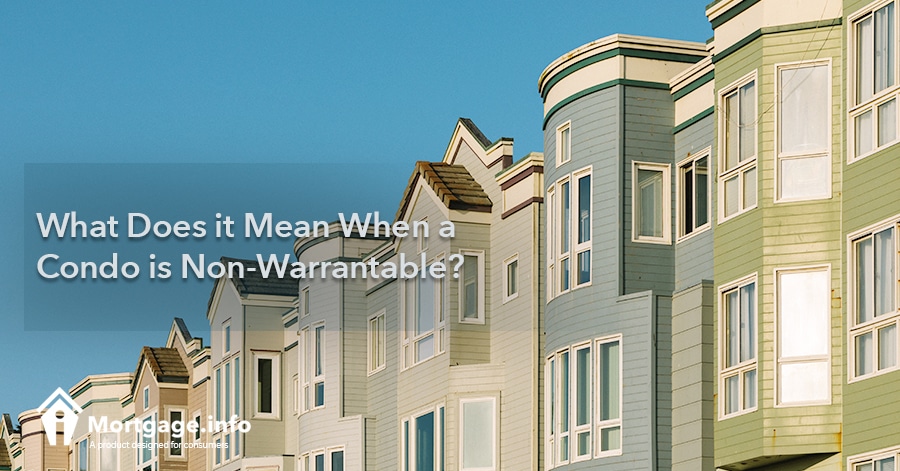
Buying a condo with mortgage financing is more difficult than buying a single-family home with a mortgage. You are at the mercy of the lender/mortgage program when choosing the condo development. Unfortunately, not all condo developments receive approval from the mortgage programs available today.
Compare Offers from Several Mortgage Lenders.
If a condo is non-warrantable, it means it’s not approved by a mortgage program. In other words, Fannie Mae or HUD do not approve of the condo for one reason or another. Keep reading to find out about non-warrantable condos and the risks you take if you buy one.
The Risks of a Non-Warrantable Condo
If a condo is non-warrantable, it means that it doesn’t mean some of the major requirements that the mortgage programs require. These requirements are in place in order to protect both you and the lender that funds the loan that helps you buy the condo.
A few of the most common issues that cause a condo to be non-warrantable include:
- The development is still being built
- Too many of the units are rented out
- The development is used as a condotel (hotel)
- The association is in financial trouble
- The association is in legal trouble
- The association doesn’t have proper insurance to protect the condo owners
If any of these situations are present on a condo development, you won’t be able to secure a conventional, FHA, VA, or USDA loan on the condo.
Click to See the Latest Mortgage Rates.
What you Risk
So what do you risk if you are able to buy the condo with cash or you find a lender willing to lend you money for it? First, it will likely be harder to sell the condo when you are ready to move. If the condo is non-warrantable when you bought it, chances are it will still be non-warrantable when you sell it unless some major changes took place. You are relying on the association making changes and/or ownership of the condos to change drastically; these chances are minimal which means resale will be difficult. You’ll need to find a buyer that was just like you – one that could either pay cash or find a willing lender that provides another financing than Fannie Mae or HUD loans.
Because of the risk the condo poses, you’ll generally pay more for the loan. This could be in the form of a higher interest rate or more fees. Lenders need to make up for the risk of default that a non-warrantable poses by making the money upfront or through the higher interest rate every month.
Finding a Lender
If a condo is non-warrantable and you can’t get any of the above loan programs, how could you buy it? You may find a subprime lender willing to give you a loan on the condo. Oftentimes, they don’t have requirements for the condo, which means you can buy it despite any of the above issues being present.
Again, because of the risk of default, subprime lenders often charge a lot for a loan on a non-warrantable condo. Even if they don’t have requirements for the condo, they know which developments in the area are non-warrantable and they will charge you accordingly. They know that the risk of default is high since the chance for resale is minimal. If you are able to sell the condo, oftentimes it ends up as a short sale (accepting less for the home than you owe). This is a risk for lenders, which is why the cost for the subprime loan could be excessive.
Your best bet is to find a warrantable condo to avoid the risk of being unable to sell it when you are ready to move. You’ll also avoid the risk of depreciation and just losing money on your investment. When you buy a home or condo, you want one that will appreciate and make you money on your investment down the road. You’ll also get more favorable financing terms, making the entire investment a better option.
